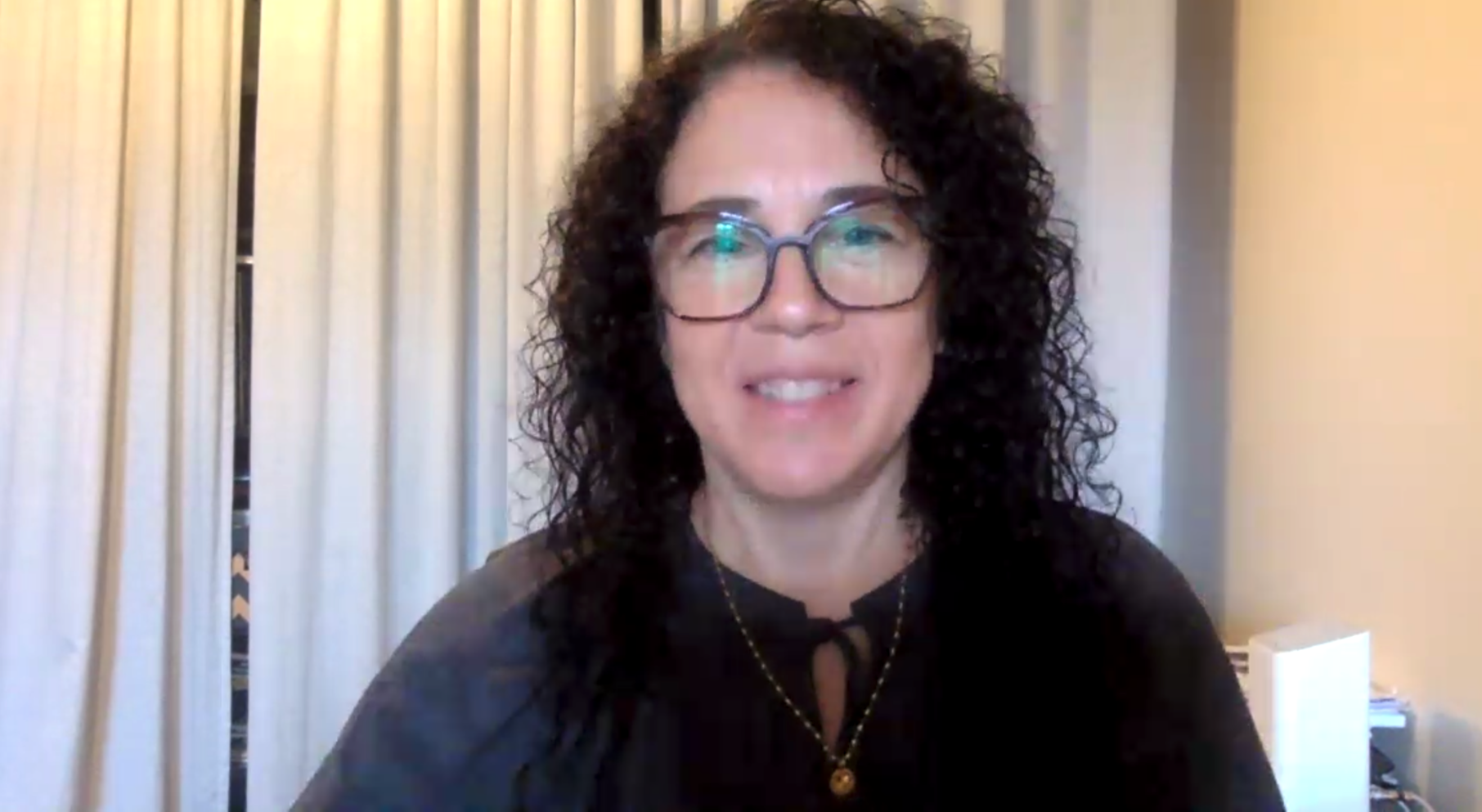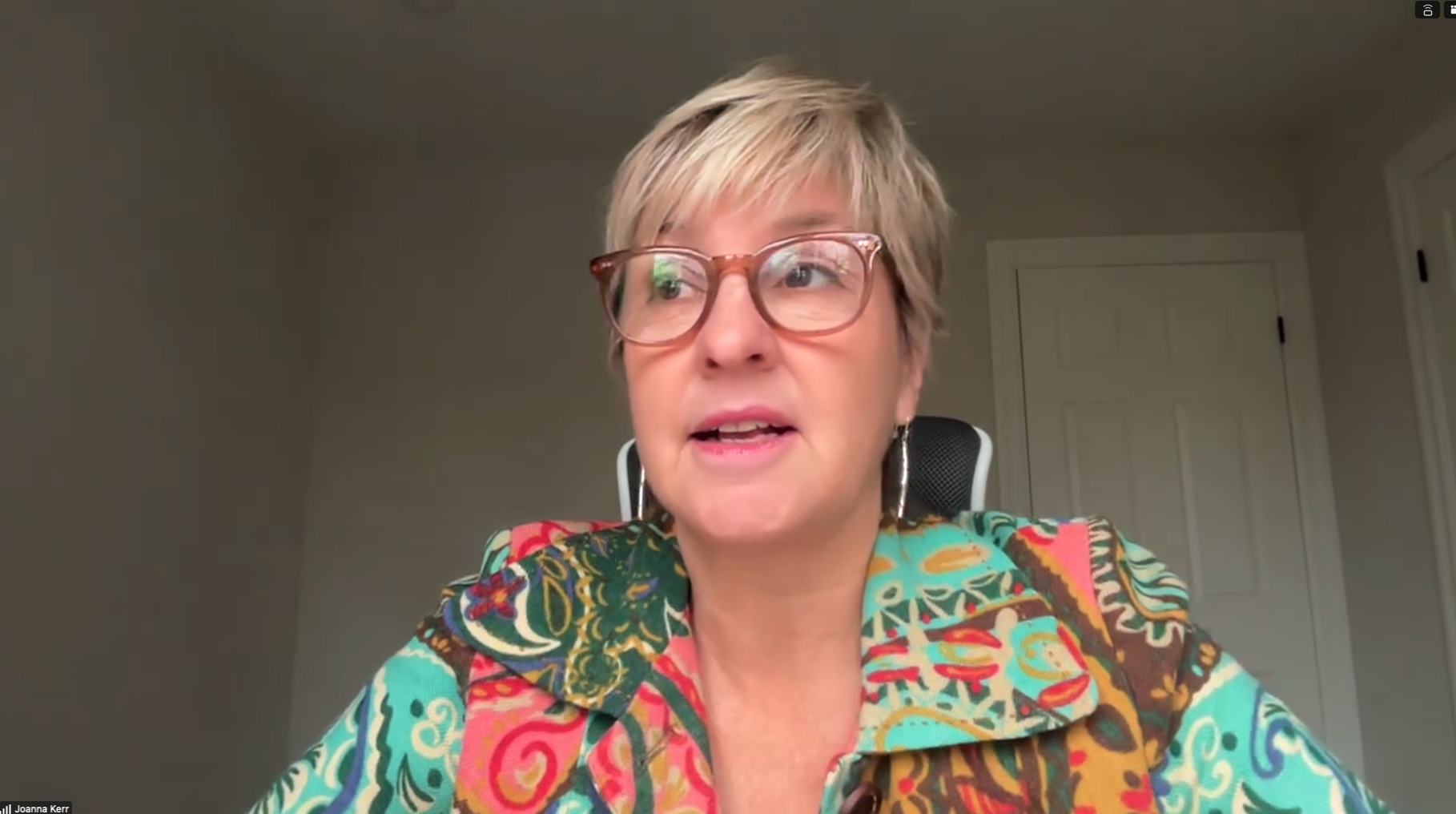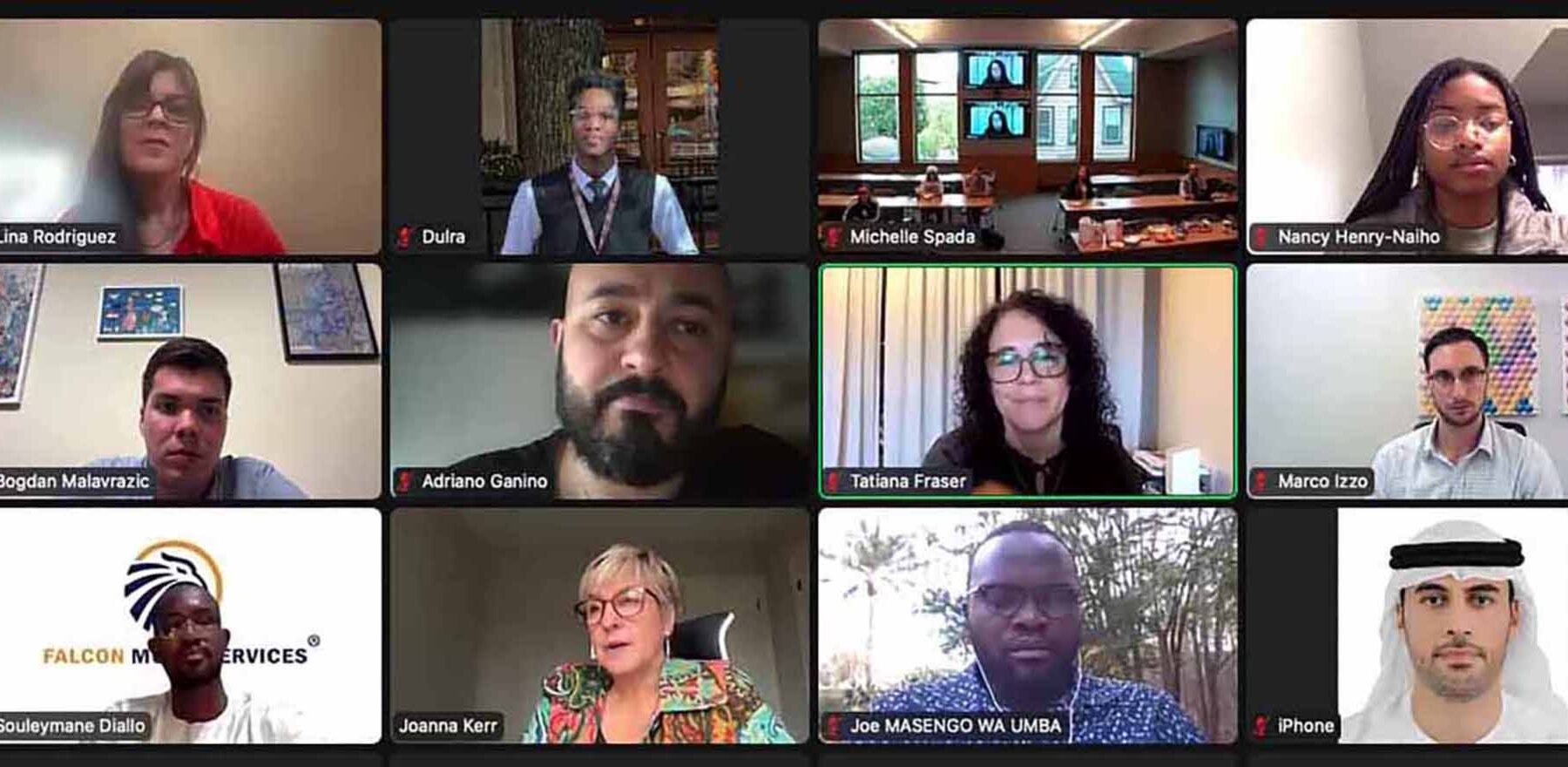During the quarantines and isolation of the COVID-19 in the early months of 2020, Joanna Kerr found herself craving the face-to-face conversations that often lead to ideas and innovation.
Kerr is President & CEO of MakeWay, an organization with the mission to “build partnerships and solutions to help nature and communities thrive together.” She reached out to Tatiana Fraser, co-founder of The Systems Sanctuary, which teaches and trains leaders on systems change.
Together, Kerr and Fraser convened a “kitchen cabinet” of feminist systems change leaders, which gathered via Zoom during the pandemic to share perspectives and offer support to one another.
“It was profound,” Kerr said. “Everybody has had some personal transformation as a result of this, and it spoke to the power of that safe space where you could bring your whole self. It became such a refuge, we could bring anything. There was lots of laughter; there was lots of tears.”
Kerr and Fraser discussed this experience and for support when working on large social change issues with Lehigh University students and community members on Nov. 17 as part of International Education Week organized by Lehigh’s Office of International Affairs. The online event was initiated by Angelina Rodríguez, Assistant Vice Provost for Global Learning and Teaching Associate Professor at Lehigh’s College of Health.
Rodríguez has been wanted to introduce former First Lady Michelle Obama’s concept of a “kitchen table,” as a practice at Lehigh. Obama used this term to refer to her closest confidants, a group carefully culled across diverse races, ages, and backgrounds who Obama leaned on for support and counsel.
“As we talk about educating global future makers, we also need to ask how they are going to sustain their work, which can be overwhelming and lonely,” Rodríguez said. “Wouldn’t it be wonderful if every student at Lehigh could form or expand their kitchen table during their four years here? The tables of these future leaders also need to global in character, following Obama’s injunction to young people that they invite in people from a range of ages and backgrounds.”
A Diverse Kitchen Cabinet

Systems Sanctuary’s first kitchen cabinet cohort featured a small group feminist women involved in philanthropy, and it became such a success that Kerr and Fraser discussed how it could be replicated. This led to the establishment of seven cohorts in the last two years, each consisting of small groups from diverse backgrounds and perspectives.
“It was not only a gathering for peer support, but it also created the opportunity to learn and sense-make across the system,” Fraser said. “By creating learning across the ecosystem, we were emerging a collective intelligence, to help determine how we move forward and inform wise action.”
Rodríguez said she believed the kitchen cabinet and kitchen table concepts are an excellent example of the importance of Lehigh’s strategic plan emphasis on “make it together,” focusing not on the applied side, but on the “inner work” necessary to successfully support global citizenship practice.
“To do the important work the world needs, we need to be very intentional about how we show up and what we bring into this space,” she said. “We need to take care of ourselves and learn to lean on others so that we can actually sustain the work that we do, given that the things we tend to work on are enormous, much larger than our own lives and possibilities. A global kitchen table offers a key tool.”
Crowdsourcing Intelligence

Kerr’s foundation and charity MakeWay builds partnerships to help nature and communities thrive together, with a particular focus on Indigenous-led solutions, climate and culture change, ecological resurgence as well as transforming philanthropy. Kerr also led Greenpeace Canada working for Indigenous rights, nature and climate justice around the world.
Kerr said leaders in an executive role often deal with problems they cannot share with their colleagues, with an expectation that they are an expert on all things. She stressed the importance of collaborating and gaining input from others, which the kitchen table concept helped facilitate.
“As a coach, I’m also always telling people, ‘No one has to be the expert,’” Kerr said. “You have to crowdsource intelligence, and if you are trying to be the expert, that’s often being driven by the ego. Being able to crowdsource ideas strips away the loneliness and creates a level of solidarity in those spaces.”
Fraser agrees. She has spent her career starting and growing ecosystems and networks for systemic change. In addition to The Systems Sanctuary, she also co-founded Girls Action Foundation, a network supporting the empowerment and leadership of girls and young women, which was scaled nationally across Canada.
Dropping Into Our Humanity
Fraser said organizational roles and the mandates and funding requirements for work can be constraining, so in systems practices she tries to encourage people to “drop into our full humanity.” This work was practiced in the kitchen table groups that were formed.
“It’s dropping into the complexity of who we are as human beings, and all the multiple dimensions of the ways we exist in the world,” Fraser said. “There's a lot of space there for learning and transforming, but also we're tapping new sites of power, ways of being, and pathways forward when we're struggling with how to actually create transformational change.”
The first kitchen cabinet discussions were held once every few weeks starting in April 2020, and Kerr said she didn’t miss a single session during the first year. “In many cases for some it was almost a spiritual space, where everyone could feel a deeper connection with what they were yearning for at some kind of spiritual level.”
Fraser said the participants brought an “intersectional feminist lens” to the conversation, creating diverse perspectives and contexts. “We were cognizant of the fact that, if we have the same people in the room from the same dominant system, we risk repeating the same patterns that we’re trying to change. We wanted to avoid that.”
What’s next?
Fraser will be participating in Lehigh’s Global Citizenship Program (GCP) Seminar in Mexico this spring, providing a masterclass on systems change work to the sophomore cohort and some invited Mexican student counterparts. The program, which Rodríguez directs, invites students to cultivate an ethical stance, a critical way of thinking, and a committed mode of intervening in a world populated by others with whom we must co-create a viable future.
